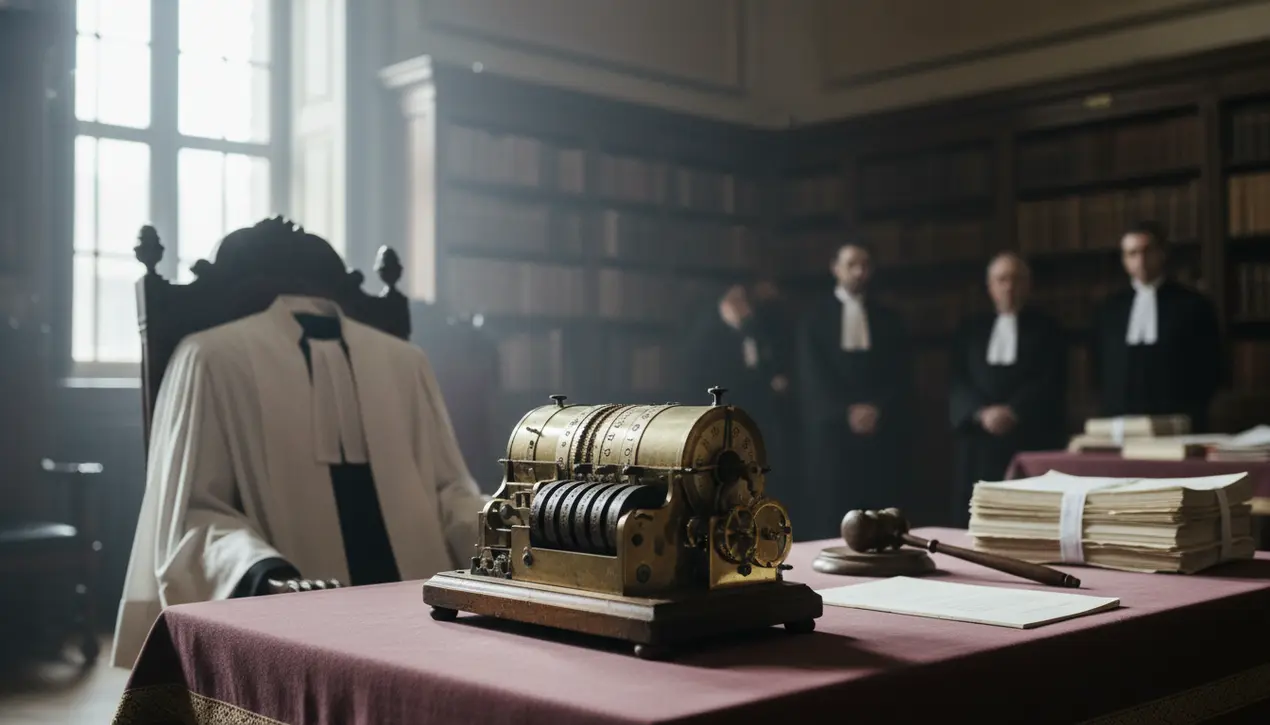
SciencearchaeologyCultural Heritage
Paris Court Halts Sale of Historic Pascal Calculator.
AM
Amanda Lewis
2 hours ago7 min read1 comments
In a dramatic ruling that resonates with the final act of a well-structured play, a Paris court has decisively rescinded the export license for a seminal artifact of human intellect: a 17th-century calculating machine invented by Blaise Pascal. This isn't merely a bureaucratic delay; it's a climactic scene in the ongoing cultural drama pitting the irrepressible force of the international art market against the immovable object of national heritage.The device in question, the Pascaline, is no simple antique. Conceived by the French polymath between 1642 and 1644 to aid his father, a tax commissioner, it represents one of the very first practical implementations of a mechanical calculator, a breathtaking leap from abstract mathematical theory to tangible, gear-driven reality.Its intricate clockwork, capable of performing addition and subtraction through a series of dials and internal wheels, is a protagonist in the story of the Enlightenment, a physical manifestation of the era's burgeoning belief in reason and mechanization. The French cultural ministry, playing the role of the staunch protector, successfully argued that this particular Pascaline is a 'national treasure,' an object of such profound historical significance that its potential departure from French soil constitutes an irreparable loss to the nation's collective memory.This legal maneuver effectively halts its planned sale at a major auction house, throwing a wrench into the gears of a transaction that was likely headed for a seven-figure sum, given the object's rarity and its direct connection to a figure of Pascal's stature. The case opens a fascinating subplot on the nature of value itself—contrasting the cold, hard calculus of the auction house with the warm, intangible worth of cultural identity.One can easily imagine the bidding war between wealthy private collectors and institutions, each seeing in the Pascaline's brass housing either a trophy of unparalleled prestige or a key artifact for a collection on the history of science. Yet, the court's decision underscores a powerful counter-narrative: that some objects transcend commodification.They are not merely property but are, in a sense, part of the national script, essential for understanding the character and journey of a people. This precedent sets a formidable stage for future disputes, potentially empowering other nations to more aggressively contest the export of items they deem central to their historical narrative.The Pascaline now sits in a state of limbo, its fate suspended like a dramatic pause in a pivotal scene. Will a French institution muster the resources to acquire it, ensuring its permanent residence in the country that gave it birth? Or will this legal intermission merely delay its eventual exit? The ruling is a powerful review of our times, critiquing a globalized market that often treats heritage as just another asset class and championing the idea that the artifacts which chart our intellectual evolution deserve a protected status on the stage of history.
#featured
#Pascal
#Pascaline
#17th-century
#arithmetic machine
#cultural heritage
#Paris court
#export ban
#historic artifact
Stay Informed. Act Smarter.
Get weekly highlights, major headlines, and expert insights — then put your knowledge to work in our live prediction markets.
Comments
Loading comments...
© 2025 Outpoll Service LTD. All rights reserved.